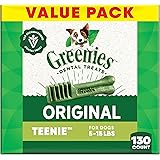Are You Ensuring Your Pet Has Access to Fresh, Unfrozen Water?
As winter blankets the world in frosty beauty, pet owners face a crucial question: how can we ensure our furry companions stay hydrated in the cold? Have you ever wondered about the challenges pets may face in accessing water during chilly weather and the importance of preventing dehydration? Let’s explore the nuances of winter hydration for pets and discover the measures you can take to keep their water bowls flowing even in freezing conditions.
The Overlooked Winter Hydration Challenge:
- While it’s common knowledge that staying hydrated is vital for pets, the winter months present unique challenges. In cold weather, water sources can freeze, making it difficult for pets to access the hydration they need. Understanding this challenge is the first step in ensuring your pet’s well-being during winter.
The Importance of Hydration in Winter:
BarkBox - Monthly Dog Subscription Box
Get your puppy the best toys and treats delivered monthly! BarkBox offers premium dog toys, treats, and chews that are perfect for growing puppies. Each box is curated by experts and includes 2 toys, 2 bags of treats, and a chew.
Amazon Puppy Essentials
Everything you need for your new puppy in one place. From crates and beds to food bowls and training pads, Amazon has all the essentials at great prices with fast shipping.
- Dehydration is a risk even in colder temperatures. Lack of water can lead to a range of health issues, including urinary tract problems, dry skin, and even more severe complications. Proper hydration is crucial for maintaining your pet’s overall health and vitality throughout the winter season.
Choosing the Right Water Bowl:
- Selecting the appropriate water bowl can make a significant difference. Consider using bowls that are less prone to freezing, such as insulated or heated bowls. These options can help prevent water from turning into an ice block and ensure that your pet has continuous access to unfrozen water.
Strategies for Preventing Freezing:
- Employing strategies to prevent freezing is essential. Placing water bowls in sheltered areas, away from direct wind exposure, can reduce the likelihood of freezing. Additionally, refilling the bowl with fresh water regularly helps maintain a liquid state and prevents ice buildup.
Heated Water Bowl Solutions:
- Investing in a heated water bowl is a proactive measure to ensure your pet has access to water at all times. These bowls are designed to keep water at a consistent temperature, preventing freezing even in the coldest conditions. It’s a reliable solution for pet owners facing harsh winter climates.
Monitoring Your Pet’s Water Intake:
- Pay close attention to your pet’s water consumption. If you notice a decrease in their usual intake, it could be a sign of dehydration. Encourage them to drink by offering fresh water regularly and monitoring their behavior for any signs of distress or discomfort.
Creating Indoor Hydration Stations:
- While outdoor hydration is crucial, creating indoor hydration stations is equally important. Ensure that your pet has access to fresh water inside your home. This becomes especially relevant during extremely cold weather when outdoor excursions might be limited.
Hydration and Diet Connection:
- Keep in mind that a pet’s diet can influence their hydration needs. Dry kibble, for instance, may lead to increased water requirements. Adjust your pet’s diet accordingly and consider incorporating wet food or adding water to their meals to boost hydration.
Regular Water Bowl Checks:
- Make it a habit to check your pet’s water bowl regularly, especially during winter. Remove any ice that may have formed and replenish with fresh water. Regular checks ensure that your pet always has access to a clean and liquid water source.
Consulting Your Veterinarian:
- When in doubt or if you notice any changes in your pet’s behavior or hydration patterns, consult with your veterinarian. They can provide guidance on specific hydration needs based on your pet’s breed, age, and health condition, ensuring a tailored approach to winter hydration.
Winter hydration for pets is a critical aspect of their overall well-being, often overlooked amidst the winter wonderland. By addressing freezing challenges, choosing the right water bowl, and adopting proactive measures, you can ensure that your furry friend stays hydrated and healthy throughout the chilly season. Remember, a little extra effort in winter hydration goes a long way in ensuring your pet’s pawsitively happy and hydrated winter.
Auto Amazon Links: No products found.











